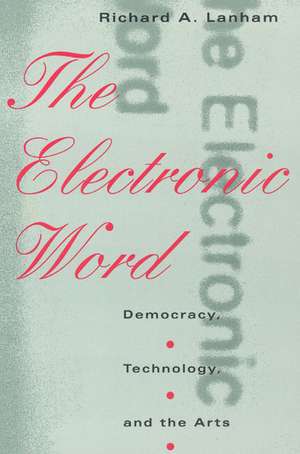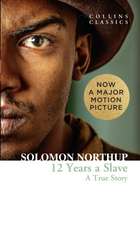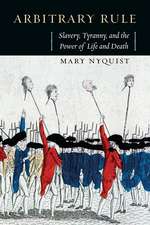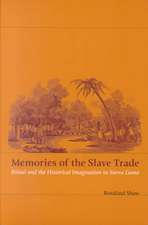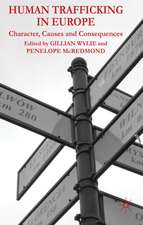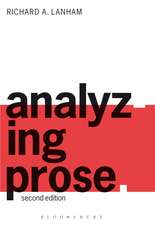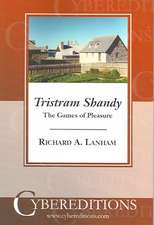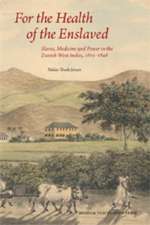The Electronic Word: Democracy, Technology, and the Arts
Autor Richard A. Lanhamen Limba Engleză Paperback – 30 noi 1994
The personal computer has revolutionized communication, and digitized text has introduced a radically new medium of expression. Interactive, volatile, mixing word and image, the electronic word challenges our assumptions about the shape of culture itself.
This highly acclaimed collection of Richard Lanham's witty, provocative, and engaging essays surveys the effects of electronic text on the arts and letters. Lanham explores how electronic text fulfills the expressive agenda of twentieth-century visual art and music, revolutionizes the curriculum, democratizes the instruments of art, and poses anew the cultural accountability of humanism itself.
Persuading us with uncommon grace and power that the move from book to screen gives cause for optimism, not despair, Lanham proclaims that "electronic expression has come not to destroy the Western arts but to fulfill them."
The Electronic Word is also available as a Chicago Expanded Book for your Macintosh®. This hypertext edition allows readers to move freely through the text, marking "pages," annotating passages, searching words and phrases, and immediately accessing annotations, which have been enhanced for this edition. In a special prefatory essay, Lanham introduces the features of this electronic edition and gives a vividly applied critique of this dynamic new edition.
This highly acclaimed collection of Richard Lanham's witty, provocative, and engaging essays surveys the effects of electronic text on the arts and letters. Lanham explores how electronic text fulfills the expressive agenda of twentieth-century visual art and music, revolutionizes the curriculum, democratizes the instruments of art, and poses anew the cultural accountability of humanism itself.
Persuading us with uncommon grace and power that the move from book to screen gives cause for optimism, not despair, Lanham proclaims that "electronic expression has come not to destroy the Western arts but to fulfill them."
The Electronic Word is also available as a Chicago Expanded Book for your Macintosh®. This hypertext edition allows readers to move freely through the text, marking "pages," annotating passages, searching words and phrases, and immediately accessing annotations, which have been enhanced for this edition. In a special prefatory essay, Lanham introduces the features of this electronic edition and gives a vividly applied critique of this dynamic new edition.
Preț: 290.17 lei
Nou
Puncte Express: 435
Preț estimativ în valută:
55.52€ • 58.12$ • 46.21£
55.52€ • 58.12$ • 46.21£
Carte tipărită la comandă
Livrare economică 31 martie-14 aprilie
Preluare comenzi: 021 569.72.76
Specificații
ISBN-13: 9780226468853
ISBN-10: 0226468852
Pagini: 302
Ilustrații: facsimiles
Dimensiuni: 152 x 229 x 20 mm
Greutate: 0.4 kg
Ediția:1
Editura: University of Chicago Press
Colecția University of Chicago Press
ISBN-10: 0226468852
Pagini: 302
Ilustrații: facsimiles
Dimensiuni: 152 x 229 x 20 mm
Greutate: 0.4 kg
Ediția:1
Editura: University of Chicago Press
Colecția University of Chicago Press
Notă biografică
Richard A. Lanham is professor emeritus of English at UCLA and President of Rhetorica, Inc. He has written ten books, including A Handlist of Rhetorical Terms and Literacy and the Survival of Humanism.
Cuprins
Preface
Acknowledgments
1: The Electronic Word: Literary Study and the Digital Revolution
2: Digital Rhetoric and the Digital Arts
3: Twenty Years After: Digital Decorum and Bi-stable Allusions
4: The Extraordinary Convergence: Democracy, Technology, Theory, and the University Curriculum
5: Electronic Textbooks and University Structures
6: Strange Lands, Strange Languages, and Useful Miracles
7: The "Q" Question
8: Elegies for the Book
9: Operating Systems, Attention Structures, and the Edge of Chaos
10: Conversation with a Curmudgeon
Index
Acknowledgments
1: The Electronic Word: Literary Study and the Digital Revolution
2: Digital Rhetoric and the Digital Arts
3: Twenty Years After: Digital Decorum and Bi-stable Allusions
4: The Extraordinary Convergence: Democracy, Technology, Theory, and the University Curriculum
5: Electronic Textbooks and University Structures
6: Strange Lands, Strange Languages, and Useful Miracles
7: The "Q" Question
8: Elegies for the Book
9: Operating Systems, Attention Structures, and the Edge of Chaos
10: Conversation with a Curmudgeon
Index
